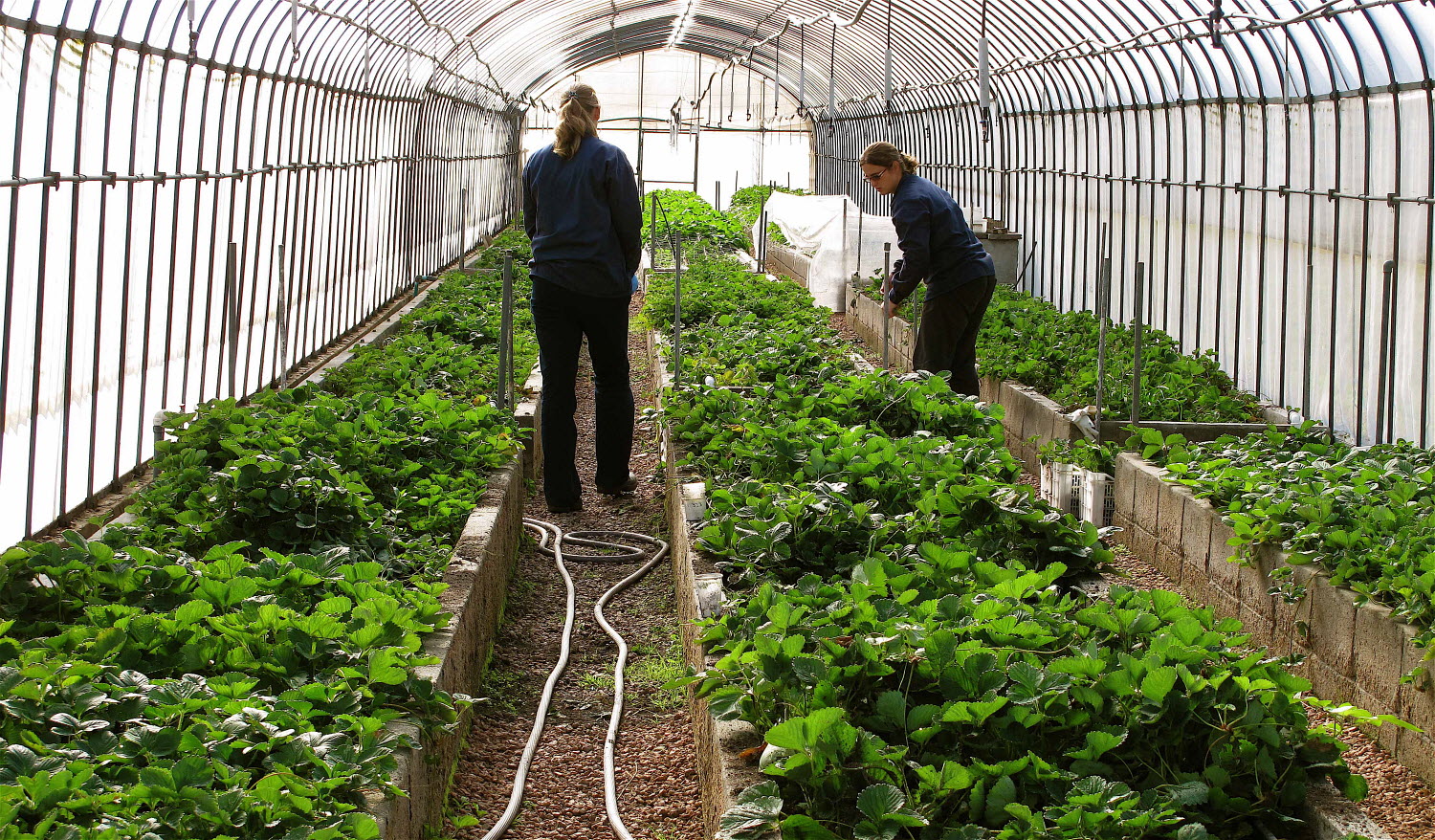Agroecology a win-win for Uruguay’s farmers, environment and economy

The ‘Agroecological and climate resilient systems’ project mobilizes USD 35.5 million from the World Bank – alongside technical support from the FAO Investment Centre – to sustainably build agricultural productivity and boost climate change adaptation and mitigation actions.
Farmers in Uruguay grapple with depleted soil and declining water resources – while climate-related shocks are increasing, both in frequency and intensity.
Agroecological approaches empower farmers and communities to adopt more sustainable agricultural practices, to fit their specific social, environmental and economic conditions. Agroecology also mitigates climate change by reducing emissions and decreasing the negative impact of farming on biodiversity and the natural environment.
“Agroecological methods and practices can strengthen climate resilience whilst supporting farmers to remain productive and profitable for future generations,” said Roble Sabrie, Economist at FAO Investment Centre. “Uruguayan farmers can produce food in an environmentally sustainable way and at the same time there is scope for them to become more competitive internationally.”
Support for Uruguay’s farmers to manage climate and environmental risks
Uruguay’s agriculture sector accounts for 77 percent of the country’s export earnings and is key to national growth and global competitiveness.
But decades of intensive and industrial farming have taken a toll on soil and water resources. Lands, soils and biodiversity are increasingly depleted, rendering agricultural ecosystems more fragile, and less resilient to climate change impacts.
The agriculture sector is witnessing an alarming loss in production when the sector is hit by frequent extreme weather events such as droughts and floods, with severe knock-on social and economic consequences.
“Responding to climate-related emergencies and managing ongoing risks are increasingly critical for Uruguay’s farmers and decision-makers,” said Edward Bresnyan, Senior Rural Development Specialist and the World Bank’s Task Leader for the project. “Through this World Bank-financed project, with FAO support, the Government of Uruguay is mobilizing investment to roll out innovative farm management and monitoring systems, enabling farmers and technicians to access climate, weather and soil information.”
The new project aims to build climate resilience for agricultural public systems and rural producers through promoting agroecological approaches. Activities will strengthen climate change adaptation and mitigation actions, empowering farmers to respond effectively to climate-related emergencies.
Environmentally-friendly production processes
The Government of Uruguay has expressed a strong commitment to transitioning its agrifood sector towards one based on agroecological principles.
Their goal is to stimulate growth and enhancing productivity while protecting the country’s natural resources and promoting environmental sustainability.
The Ministry of Livestock, Agriculture and Fisheries (MGAP) implements the project and will soon be launching calls for proposals from farmers to pilot agroecological interventions and provide guidance on best practices to enhance national systems for monitoring and tracking the use and management of agricultural soils.
Farmers will be encouraged to undertake rotation between crops and pasture, use more bio-fertilizers and bio-pesticides, and ensure the proper management and traceability of any agrochemicals.
Irrigation and drainage systems are among the public systems targeted – including improvements to water quality and waste management in the Santa Lucía River basin, which supplies water to over 60 percent of the population of Uruguay.
Innovative digital tools such as GPS-enabled devices will be supplied to farmers, enabling them to precisely apply phytosanitary products for plant disease management – while safeguarding ecosystems and natural resources.
National systems and policies on animal health and the co-habitation of humans and animals within ecosystems will be strengthened, with the knowledge that protecting animal health and welfare contributes directly to human health, safety and food security.
Uruguayan agricultural products will be promoted as sustainable, ensuring they are locally and internationally recognized for their environmentally-friendly production processes.
Positive prospects for producers – and consumers
Women producers are vital participants in Uruguay’s agroecological transition. Since women account for only 28 percent of the total users of agro-information systems, they are often disadvantaged through their limited access to agriculture- and climate-related information.
The project aims to promote the inclusiveness of women-led farming systems and agribusinesses and enhance their resilience. Around 2000 rural women in Uruguay will benefit from project investment through access to technical assistance and knowledge to improve their digital literacy.
Uruguayan consumers are expected to benefit from the project’s activities through access to improved products at more competitive prices, as well as better water quality. Internationally, the project could further benefit consumers of Uruguay’s high-quality exported agricultural products – such as beef, lamb, dairy products and vegetables, with higher food safety and nutritional standards.
Prices are projected to remain competitive, while products should comply with higher levels of certification in terms of quality, reduced carbon emissions, and environmental sustainability – benefitting Uruguay’s farmers, economy and environment.
